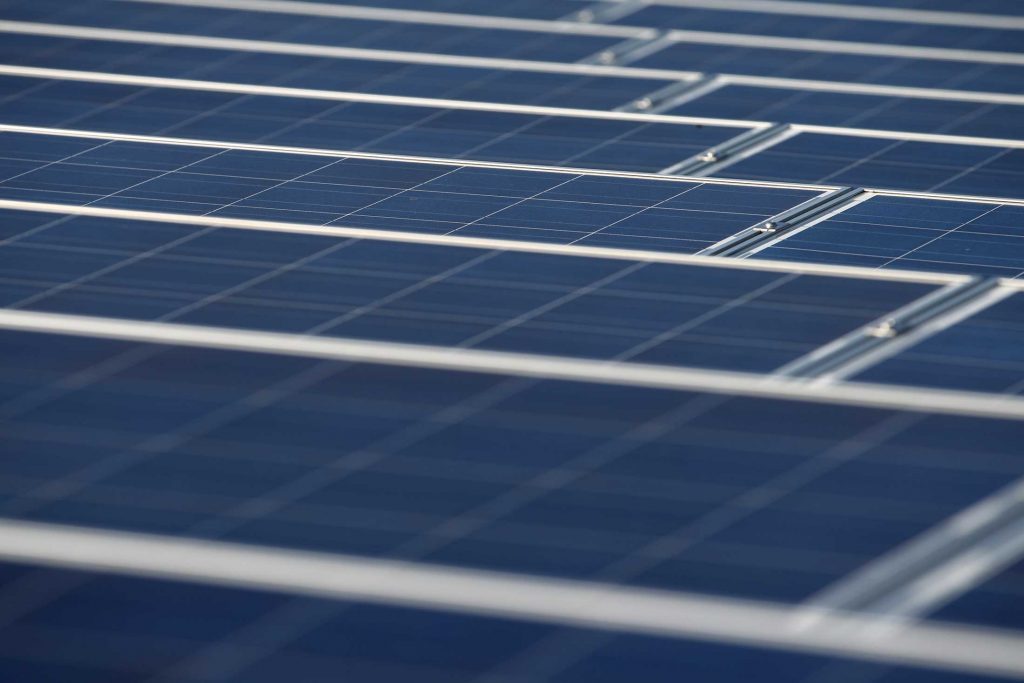
The European Union proposed making its climate-neutrality strategy a key pillar of a 750 billion-euro ($824 billion) recovery plan in a bid to boost economic growth and create new jobs.
The unprecedented stimulus program — along with a revised budget for the next seven years — aims to accelerate the transition to clean transport, increase energy savings and boost the production of renewable energy. The blueprint also promises more funds to help the regions most affected by the environmental clean-up that European Commission President Ursula von der Leyen put at the heart of her political agenda.
“We can now lay the cornerstone for a union which is climate neutral, digital and more resilient than ever before,” von der Leyen told members of the European Parliament in Brussels on Wednesday.
The package, the world’s greenest stimulus plan to mitigate the economic effects of the coronavirus crisis, needs to be approved by the bloc’s 27 member states in difficult negotiations that may take months. It would promote sustainable investment in sync with the EU’s climate and energy targets, a move that was missing in many national Covid-19 bailouts despite encouragement from the commission.
Recovery efforts by individual European governments have so far had a mixed record when it comes to climate. France’s 7 billion-euro bailout for Air France-KLM has green strings attached, including the need for the airline to eliminate short-haul flights for routes covered by high-speed trains. By contrast, the Italian government’s 3 billion-euro support plan targeting Alitalia had no similar conditions.
The stimulus program, which will be funded by the commission’s borrowing on financial markets, includes 500 billion euros in grants and 250 billion euros in loans. It comes on top of a 1.1 trillion-euro budget for the 2021-2027 period. It’s not immediately clear how much of the funds will be earmarked for green initiatives, though analysts put the numbers at more than 100 billion euros.
“This is a great step forward in accelerating the ecological transition,” said Pascal Canfin, a French member of the liberal group in the European Parliament and chair of the assembly’s environment committee. “This is a historic day for Europe.”
Among the few financial details unveiled on Wednesday was a 30 billion-euro boost for the Just Transition Fund, which will now have 40 billion euros at its disposal to help the most affected regions alleviate the impact of transitioning toward eliminating emissions. The aid can be used for re-skilling of workers or putting small and medium-sized companies on a more sustainable track.
On the list is also a proposal to reinforce the budget for a European agriculture fund to help farmers and rural areas implement the Green Deal. The 15 billion-euro fund will help the agriculture sector achieve new biodiversity targets and Europe’s clean food supply chain strategy.
More details are due to be unveiled in the coming days, with Frans Timmermans, executive vice-president of the commission, set to hold a press conference on Thursday in Brussels.
The announcement on Wednesday includes “eye-catching green options,” but doesn’t solve existing support for polluting industries, environmental lobby Greenpeace said in an emailed statement. “For every sensible measure there is another that keeps us dependent on fossil fuels, encourages the destruction of nature, and prolongs job insecurity.”
The sense of urgency to act on the climate has been building up in past weeks even as the pandemic swept countries across the world, killing thousands and sending entire economies into lockdowns. Companies worth $2 trillion, top economists led by Nobel laureate Joseph Stiglitz and even medical professionals are calling on governments to implement a green recovery.
“The EU’s stimulus plan is a once in a generation opportunity, if we get this right we’ll emerge in a Europe with healthy and livable cities, a cutting-edge automotive industry and millions of new green jobs” said William Todts, executive director at the Transport & Environment lobby. “The stakes couldn’t possibly be higher.”
Recommended for you
